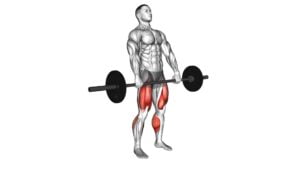The Clean Eating Diet Plan Guide
Are you looking to improve your health and wellness through a clean eating diet? Look no further than 'The Clean Eating Diet Plan Guide.'
This comprehensive guide will walk you through the benefits of clean eating, help you understand whole foods, and provide tips for getting started.
With meal planning and prep strategies, grocery shopping tips, and delicious recipes, you'll be able to incorporate clean eating into your lifestyle and maintain a balanced and sustainable diet.
Key Takeaways
- Clean eating improves digestion and promotes regular bowel movements.
- It helps in weight loss by choosing nutrient-dense foods and controlling calorie intake.
- Clean eating reduces the risk of chronic diseases such as heart disease, diabetes, and certain types of cancer.
- Whole foods, which are minimally processed or unprocessed, provide essential nutrients and support good health.
Benefits of Clean Eating
You should regularly experience the numerous benefits of clean eating. Clean eating isn't just about weight loss; it also plays a significant role in improving digestion. When you eliminate processed foods and focus on whole, unprocessed foods, you provide your body with the nutrients it needs to function optimally.
Clean eating can help you shed those extra pounds and maintain a healthy weight. By choosing nutrient-dense foods like fruits, vegetables, lean proteins, and whole grains, you can fuel your body while keeping calorie intake in check.
Additionally, clean eating can improve digestion by promoting regular bowel movements and reducing bloating. When you consume foods that are free from additives, preservatives, and artificial ingredients, your digestive system can function more efficiently. This can lead to reduced discomfort and improved overall gut health.
Understanding the importance of clean eating for weight loss and improved digestion sets the foundation for embracing a healthier lifestyle. Now, let's dive deeper into the concept of understanding whole foods and how they can support your clean eating journey.
Understanding Whole Foods
To understand whole foods and their role in clean eating, it's important to recognize that they provide essential nutrients and support optimal bodily function. Whole foods are minimally processed or unprocessed foods that are as close to their natural state as possible. They include fruits, vegetables, whole grains, lean proteins, and healthy fats.
One of the key benefits of whole foods is that they're rich in nutrients. Unlike processed foods, which often contain added sugars, unhealthy fats, and artificial additives, whole foods are packed with vitamins, minerals, and antioxidants that are vital for maintaining good health. These nutrients help to support a strong immune system, promote healthy digestion, and provide energy for daily activities.
Whole foods are also important for maintaining a healthy weight. They're typically lower in calories and higher in fiber compared to processed foods. The fiber in whole foods helps to keep you feeling full and satisfied, reducing the likelihood of overeating. Additionally, whole foods are generally more nutrient-dense, meaning they provide a greater amount of nutrients per calorie consumed, which is important for overall health and weight management.
Incorporating whole foods into your diet can also help reduce the risk of chronic diseases such as heart disease, diabetes, and certain types of cancer. The natural compounds found in whole foods have been shown to have protective effects against these diseases.
Eliminating Processed and Refined Products
By eliminating processed and refined products, you're taking a crucial step towards embracing clean eating and fueling your body with wholesome nutrition. Processed foods are often high in added sugars, unhealthy fats, and artificial additives, which can contribute to weight gain and various health problems. Clean eating, on the other hand, focuses on consuming whole, unprocessed foods that are rich in nutrients and free from artificial ingredients.
When you eliminate processed foods from your diet, you're reducing your intake of empty calories and increasing your consumption of nutrient-dense foods. This can have a positive impact on your weight loss efforts. Processed foods tend to be high in calories but low in nutritional value, leaving you feeling unsatisfied and prone to overeating. On the contrary, whole foods provide your body with essential vitamins, minerals, and fiber, which can help regulate your appetite and support healthy weight management.
Additionally, eliminating processed and refined products can improve your overall health. Research suggests that diets high in processed foods are associated with an increased risk of chronic conditions, such as obesity, heart disease, and type 2 diabetes. By choosing clean, whole foods, you're nourishing your body with the nutrients it needs to thrive and reducing your risk of these health issues.
Tips for Getting Started With Clean Eating
Transitioning to clean eating can be made easier by incorporating a few simple tips into your daily routine. Whether you're new to clean eating or looking to use it as a weight loss strategy, these tips are designed to help beginners make a smooth transition.
First, start by gradually eliminating processed and refined products from your diet. Replace them with whole, unprocessed foods such as fruits, vegetables, whole grains, lean proteins, and healthy fats. This won't only improve the nutritional value of your meals but also aid in weight loss by reducing empty calories and increasing satiety.
Another tip is to read food labels carefully. Look for ingredients that you can pronounce and recognize, while avoiding added sugars, artificial additives, and preservatives. Pay attention to portion sizes as well, as overeating even healthy foods can hinder weight loss efforts.
Planning and preparing your meals in advance can also be helpful. This allows you to have healthy options readily available, making it easier to stick to your clean eating plan. Consider batch cooking, meal prepping, and packing your lunch to avoid relying on unhealthy convenience foods.
By implementing these tips, you can kickstart your clean eating journey and set yourself up for success.
Now, let's move on to the next section, where we'll discuss the importance of meal planning and prep in more detail.
Meal Planning and Prep
Start incorporating meal planning and prep into your clean eating routine to ensure that you have nutritious and convenient options readily available. Meal prep is a key component of clean eating as it allows you to have control over what goes into your meals, making it easier to avoid processed foods and unhealthy ingredients. Not only does meal prep save you time during the week, but it also helps with portion control and reduces the temptation to reach for unhealthy options when you're hungry and pressed for time.
Here are three tips to help you with meal planning and prep:
- Set aside specific time each week to plan your meals and create a grocery list. This will help you stay organized and ensure that you have all the necessary ingredients on hand.
- Choose simple recipes that can be prepared in bulk and easily portioned out. This will save you time and make it easier to grab a healthy meal or snack when you're on the go.
- Invest in quality food storage containers to keep your prepped meals fresh and easily accessible. Having a well-organized fridge and pantry will make it easier for you to stick to your clean eating goals.
Navigating Grocery Shopping for Clean Eating
Make your grocery shopping trips for clean eating easier by following these tips.
When it comes to clean eating on a budget, it's important to make smart choices and plan ahead. Start by creating a shopping list based on your meal plan for the week. This will help you stay focused and avoid impulse purchases.
Look for fresh fruits and vegetables that are in season, as they tend to be more affordable. Opt for whole grains like brown rice and quinoa, which are nutritious and budget-friendly.
When it comes to protein, consider buying lean cuts of meat in bulk and freezing them for later use. Alternatively, you can choose plant-based proteins such as beans, lentils, and tofu, which aren't only cost-effective but also packed with nutrients.
Don't forget to check the unit prices of products to get the best value for your money. Additionally, consider shopping at local farmers' markets or joining a community-supported agriculture (CSA) program to get fresh, locally grown produce at a lower cost.
With these grocery shopping tips, you can enjoy the benefits of clean eating without breaking the bank.
Healthy and Delicious Clean Eating Recipes
Looking for healthy and delicious clean eating recipes? You're in the right place! Clean eating offers numerous nutritional benefits, and we've easy-to-make recipes that will help you incorporate this lifestyle into your daily routine.
Plus, we'll provide tips for meal planning to make your clean eating journey even more convenient.
Nutritional Benefits of Clean Eating
Take control of your health and nourish your body with the nutritional benefits that come from clean eating. Understanding clean eating and how it differs from other diets is key to making informed choices about your nutrition.
Here are three key benefits of clean eating:
- Increased energy levels: By consuming whole, unprocessed foods, you provide your body with essential nutrients, vitamins, and minerals that fuel your energy levels throughout the day. Say goodbye to the mid-afternoon slump!
- Weight management: Clean eating focuses on natural, nutrient-dense foods that are low in calories and high in fiber. This helps to keep you feeling satisfied and reduces the likelihood of overeating, making it easier to maintain a healthy weight.
- Improved digestion: Clean eating emphasizes the consumption of fruits, vegetables, and whole grains, which are rich in dietary fiber. Fiber aids in digestion, promotes regular bowel movements, and supports a healthy gut microbiome.
Easy-To-Make Clean Recipes
To continue enjoying the nutritional benefits of clean eating, you can easily prepare healthy and delicious clean eating recipes.
Quick clean meals are a great way to nourish your body while saving time in the kitchen. For a quick and satisfying meal, try a quinoa bowl loaded with fresh vegetables and lean protein.
Another option is a simple stir-fry with tofu or chicken and plenty of colorful veggies.
Clean eating snacks are also important to keep you fueled throughout the day. Opt for homemade energy balls made with dates, nuts, and seeds, or grab a handful of mixed nuts for a protein-rich snack.
Tips for Meal Planning
To continue enjoying the nutritional benefits of clean eating, you can easily plan and prepare healthy and delicious meals that will nourish your body while saving time in the kitchen. Here are some meal planning tips and time-saving strategies to help you make the most of your clean eating journey:
- Plan your meals in advance: Take some time each week to plan your meals and create a shopping list. This will help you stay organized and ensure that you have all the ingredients you need.
- Batch cook and meal prep: Spend a few hours on the weekend cooking large batches of staple foods like grains, proteins, and vegetables. This way, you'll have ready-to-eat meals or components that can be quickly assembled during the week.
- Use leftovers creatively: Don't let leftovers go to waste. Repurpose them into new meals by adding fresh ingredients or turning them into soups, salads, or wraps. This will save you time and prevent food waste.
Incorporating Clean Eating Into Your Lifestyle
Incorporate clean eating into your lifestyle by making mindful food choices. Clean eating isn't just a short-term diet, it's a long-term commitment to nourishing your body with whole, unprocessed foods.
When it comes to incorporating clean eating into your lifestyle, one common concern is the cost. However, eating clean doesn't have to break the bank. There are several ways to eat clean on a budget.
First, focus on whole foods that are in season and locally sourced. These foods tend to be more affordable and provide you with the freshest nutrients. Additionally, buying in bulk can help you save money on staple items like grains, beans, and nuts.
Another tip is to meal plan and prep ahead of time. By planning your meals in advance and cooking in bulk, you can save both time and money. This way, you can avoid last-minute, unhealthy food choices.
Furthermore, consider buying generic or store-brand items instead of name-brand products. These options are often just as nutritious but come at a lower price.
Lastly, don't be afraid to get creative in the kitchen. Experiment with different flavors and spices to make your meals more exciting and enjoyable.
Incorporating clean eating into your lifestyle doesn't have to be expensive. With some planning, smart shopping, and a little creativity, you can eat clean on a budget and reap the many health benefits that come with it.
Maintaining a Balanced and Sustainable Clean Eating Diet
To maintain a balanced and sustainable clean eating diet, it's important to focus on essential nutrient sources. Incorporate a variety of whole foods such as fruits, vegetables, lean proteins, and whole grains into your meals.
Additionally, practicing meal prep can help ensure that you have nutritious options readily available, reducing the temptation to reach for processed or unhealthy foods.
Essential Nutrient Sources
To maintain a balanced and sustainable clean eating diet, it's important that you focus on incorporating essential nutrient sources into your meals. Here are three key sources of nutrients that should be included in your diet:
- Healthy fats: Incorporate foods such as avocados, nuts, seeds, and olive oil. These provide essential fatty acids that support brain health, hormone production, and overall well-being.
- Lean proteins: Include lean sources of protein like chicken, turkey, fish, tofu, and legumes. These provide amino acids necessary for muscle repair, growth, and immune function.
- Whole grains: Opt for whole grain sources like quinoa, brown rice, oats, and whole wheat bread. These provide fiber, vitamins, and minerals that promote digestive health and help prevent chronic diseases.
Meal Prep Tips
To maintain a balanced and sustainable clean eating diet, you can streamline your meal preparation process. By planning and preparing your meals ahead of time, you can save both time and effort throughout the week. Here are some time-saving meal prep tips that will help you stay on track with your clean eating goals:
| Meal Prep Tip | Benefits |
|---|---|
| Cook in batches | Saves time and allows for easy portioning |
| Chop vegetables in advance | Reduces prep time for salads and stir-fries |
| Pre-portion snacks | Ensures you have clean eating snacks readily available |
| Utilize slow cookers and Instant Pots | Convenient for cooking healthy meals with minimal effort |
Long-Term Health Benefits
By maintaining a balanced and sustainable clean eating diet, you can experience long-term health benefits that will positively impact your overall well-being. Here are three ways in which a clean eating diet can contribute to long-term weight loss and improve mental health:
- Weight Loss: Clean eating focuses on consuming whole, unprocessed foods that are rich in nutrients and low in calories. This can help you achieve and maintain a healthy weight over time, reducing the risk of chronic diseases such as obesity, diabetes, and cardiovascular disease.
- Improved Cognitive Function: A clean eating diet that includes plenty of fruits, vegetables, whole grains, and healthy fats can support brain health and improve cognitive function. Studies have shown that a nutrient-rich diet is associated with a lower risk of mental decline and can help improve memory and concentration.
- Reduced Inflammation: Clean eating emphasizes the consumption of anti-inflammatory foods, such as fruits, vegetables, nuts, and seeds. This can help reduce chronic inflammation in the body, which is associated with various health conditions, including depression and anxiety.
Frequently Asked Questions
Can I Still Eat Out at Restaurants While on the Clean Eating Diet Plan?
You can still eat out at restaurants while on the clean eating diet plan. Just be mindful of your choices and opt for healthier options like grilled protein, vegetables, and salads.
What Are Some Common Challenges People Face When Transitioning to a Clean Eating Diet?
When transitioning to a clean eating diet, challenges may arise. Tips to overcome them include meal planning, finding healthy substitutes, and staying motivated. It's important to remember that everyone's journey is unique, so be patient with yourself.
Are There Any Specific Food Groups or Ingredients That Should Be Avoided Completely?
When following a clean eating diet plan, it is recommended to avoid specific food groups and ingredients completely. This ensures that you are consuming only nutritious and unprocessed foods for optimal health and wellness.
How Can I Ensure I Am Getting All the Necessary Nutrients on a Clean Eating Diet?
To ensure you get all necessary nutrients on a clean eating diet, focus on consuming a variety of whole, unprocessed foods such as fruits, vegetables, whole grains, lean proteins, and healthy fats. Consider incorporating vegetarian options to meet your nutritional needs.
Can Clean Eating Help With Weight Loss, and if So, What Are Some Tips for Achieving Weight Loss Goals While Following the Clean Eating Diet Plan?
Clean eating can help with weight loss by promoting whole, nutrient-dense foods. To achieve your weight loss goals, focus on eating balanced meals, controlling portion sizes, and incorporating regular exercise.
Conclusion
In conclusion, adopting a clean eating diet can provide numerous benefits for your overall health and well-being. By focusing on whole, unprocessed foods and eliminating refined products, you can improve your digestion, boost your energy levels, and support weight management.
Incorporating meal planning, grocery shopping, and delicious clean eating recipes into your lifestyle can help you maintain a balanced and sustainable clean eating diet.
Start making small changes today and experience the positive impact of clean eating on your health.







